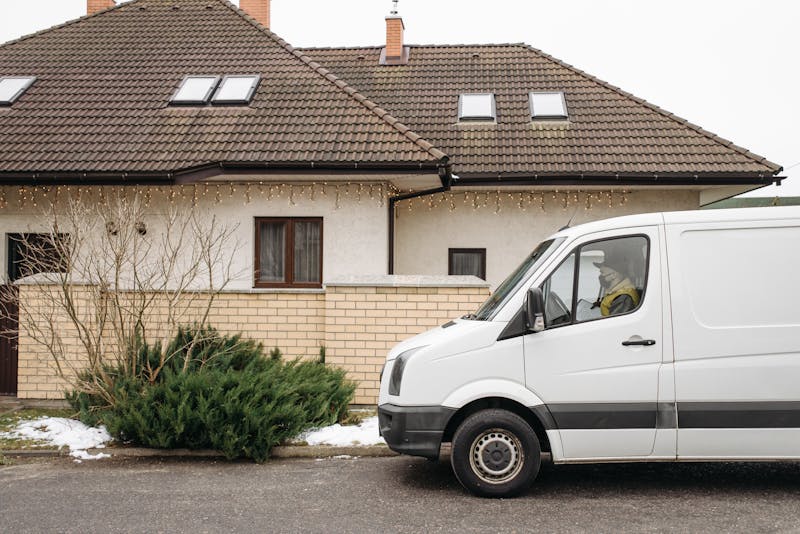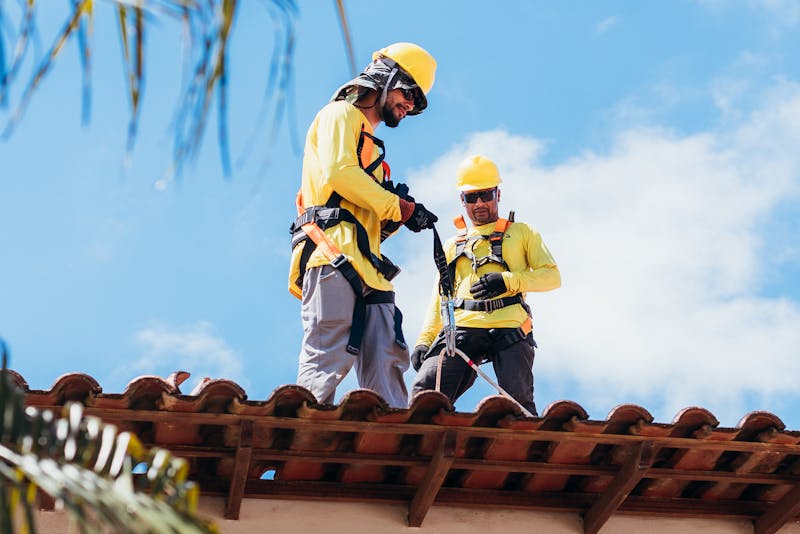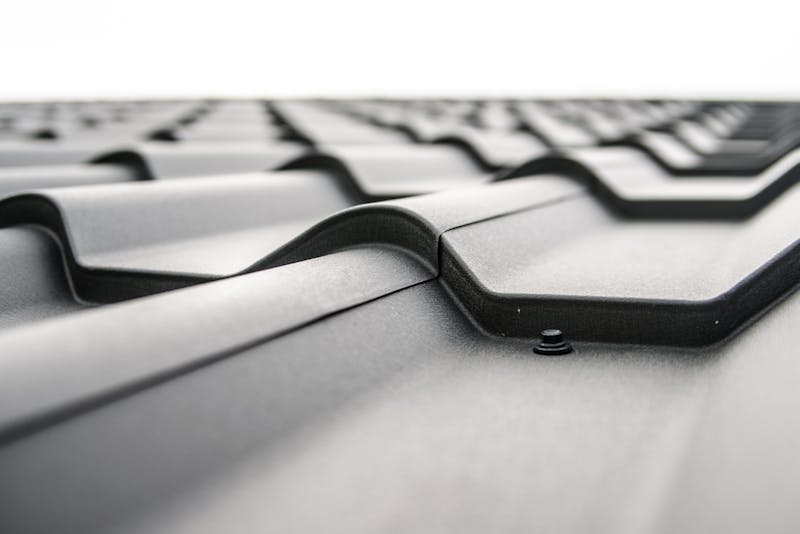- Metal roofing costs more upfront but typically saves homeowners more over the long term due to its long lifespan and low maintenance needs.
- Asphalt shingles are cheaper initially but require more frequent repairs and full replacements, increasing lifetime costs.
- Metal roofs offer better energy efficiency because they reflect heat, which helps reduce cooling expenses.
- In harsh climates, metal roofing performs significantly better than shingles, reducing the likelihood of storm-related damage.
- Metal roofs often increase home value and are considered a durable, sustainable, and eco-friendly roofing choice.
When it comes to choosing a new roof, most homeowners face the same dilemma: should you go with the more traditional asphalt shingles or invest in durable metal roofing? While shingles have been the default choice in many neighborhoods for decades, the rising popularity of metal roofs has sparked questions about long-term savings, lifespan, energy efficiency, and overall return on investment. The biggest question often asked is simple: Is metal roofing actually cheaper than shingles?
Answering this requires more than comparing price tags. Upfront installation costs tell only part of the story. To find out which roofing material genuinely saves you more money over the years, we need to look at maintenance costs, durability, energy use, environmental impact, and performance in different climates. This comprehensive guide breaks down all these factors to help homeowners make an informed, cost-efficient decision.
Understanding the True Cost of Roofing: What Should Homeowners Compare?
Before diving into numbers, homeowners need to understand that “roof cost” involves more than installation prices. This section clarifies all the cost factors you should consider before choosing between metal roofing and asphalt shingles.
When most people think about roofing costs, they immediately focus on the installation price, but this creates an incomplete picture. A roof is a long-term investment. Some materials cost more up front but save thousands of dollars later through fewer repairs, extended durability, and better energy performance. Other materials are cheaper initially but require frequent maintenance, early replacement, and more energy consumption. Without considering these long-term variables, homeowners might select a roof that appears affordable but ends up costing significantly more over time.
To make a fair comparison, homeowners should evaluate multiple factors such as material cost, lifespan, maintenance needs, energy efficiency, property value impact, and climate resilience. Each of these aspects contributes to the overall lifetime cost of your roof and affects how much you spend or save.
Key factors to compare
- Upfront installation cost
- Expected lifetime or durability
- Repair frequency and maintenance
- Energy savings or losses
- Resale value impact
- Environmental considerations
- Weather and climate performance
How Much Do Metal Roofs and Shingles Cost Up Front?

This section provides a realistic breakdown of upfront costs for both metal roofing and shingles, helping homeowners understand what to expect before installation begins.
One of the primary reasons homeowners lean toward asphalt shingles is affordability. Shingles are widely available, easy to install, and require less specialized labor. Because of this, the initial investment is significantly lower than metal roofing. However, price should never be the only deciding factor. Metal roofs carry a higher upfront price tag, but they also provide unmatched longevity and better long-term value. To make a solid comparison, let’s explore the average cost ranges for each material and what influences these prices.
Average upfront price ranges
- Asphalt shingles:
- Material costs are typically lower.
- Installation is faster and less labor-intensive.
- Generally costs less upfront but requires more frequent replacement.
- Metal roofing:
- Materials such as aluminum, steel, and copper come at higher price points.
- Installation requires specialized tools and expertise.
- Higher upfront cost but significantly longer lifespan.
What affects the installation price?
- Roof size and slope
- Local labor rates
- Type of metal or shingle selected
- Removal of old roofing materials
- Complexity of roof design
Is Metal Roofing Cheaper Than Shingles Over the Long Term?
This subhead uses your required keyword. It examines whether metal roofing offers better lifetime value than shingles.
Most homeowners compare roofing options based solely on the initial installation cost, but this overlooks the most important factor: long-term savings. When evaluating lifetime costs, metal roofing often comes out ahead of shingles because of its durability, minimal maintenance, and energy efficiency. While asphalt shingles may cost less on day one, they rarely match the lifespan or performance of metal roofing, especially in harsh climates.
Metal roofs can last several decades longer than shingles, which can translate to thousands of dollars saved from avoiding multiple replacements. Additionally, metal roofs require fewer repairs and often deliver energy savings by reflecting heat, reducing cooling costs during hot seasons. Understanding these long-term benefits provides a fuller picture of overall cost-effectiveness.
Why metal roofing saves money over time
- Fewer replacements
- Lower maintenance
- Reduced energy consumption
- Less vulnerability to weather-related damage
- Longer manufacturer warranties
Which Roof Lasts Longer: Asphalt Shingles or Metal Roofing?
Lifespan is a major cost factor because it determines how often homeowners need to reinstall or repair their roofs. This section explains durability clearly and simply.
Longevity is where metal roofing shines far above traditional asphalt shingles. Most shingles provide only moderate durability and typically need replacement within a few decades. Meanwhile, metal roofs are designed to last for many decades, even in regions exposed to extreme heat, rainfall, or wind. If you are planning to stay in your home for a long time, lifespan becomes one of the most important cost considerations.
Asphalt shingles usually degrade faster in areas with heavy UV exposure, high temperatures, or frequent storms. On the other hand, metal roofs remain structurally sound for much longer and show excellent resistance to fire, rot, insects, and mold. This extended lifespan greatly reduces the likelihood of costly repairs and premature replacements.
Typical lifespan comparison
- Asphalt shingles: approximately 15 to 30 years
- Metal roofing: approximately 40 to 70 years
Factors affecting lifespan
- Quality of materials
- Accuracy of installation
- Exposure to climate conditions
- Roof pitch and drainage
Maintenance and Repairs: Which Roof Requires Less Attention?

Homeowners often underestimate the ongoing maintenance requirements of different roofing materials. This section highlights the differences clearly.
The cost of maintenance plays a major role in determining which roofing option saves more money in the long run. Asphalt shingles typically require more frequent repairs because they can crack, warp, or lose granules over time. High winds can tear shingles loose, and moisture buildup can lead to mold or rot. As a result, homeowners with shingle roofs often face periodic expenses for patching damaged sections or replacing worn-out areas.
Metal roofs require far less maintenance. They are engineered to resist cracking, corrosion, and impacts. While inspections are still recommended, metal roofing rarely needs extensive repairs unless subjected to severe storms or falling debris. Lower maintenance costs make metal roofing more cost-effective over its lifespan.
Maintenance comparison
- Asphalt shingles
- More frequent repairs
- Vulnerable to wind, water, and UV damage
- Can develop leaks more easily
- Metal roofing
- Requires minimal maintenance
- Strong resistance to weather damage
- Less prone to leaks and structural issues
How Energy Efficient Are Metal Roofs Compared to Shingles?
Energy savings can significantly influence long-term roofing expenses. This section explores how each material performs in different climates.
Metal roofing is known for its energy efficiency, especially in warmer climates. Its reflective surface helps reduce heat absorption, which in turn lowers indoor temperatures. This reduces reliance on air conditioning, cutting energy costs throughout the year. Some metal roofs even come with specialized reflective coatings that enhance energy efficiency further.
Asphalt shingles, however, tend to absorb heat rather than reflect it. This increases cooling demands during hot seasons, especially in homes with poor attic ventilation. Darker shingles are particularly prone to heat absorption. While some energy-efficient shingle options exist, they generally do not match the performance of well-designed metal roofing systems.
Energy performance
- Metal roofing: Excellent heat reflection and energy savings
- Asphalt shingles: Higher heat absorption and increased cooling costs
Climate considerations
- Hot regions benefit greatly from metal roofs
- Cooler climates may experience minimal differences, but metal still has advantages
Impact on Home Value and Resale: Which Roof Adds More?
Roofing materials influence your home’s market value. This section explains how each option affects resale appeal.
A high-quality roof is attractive to potential buyers. Metal roofing often increases home value more than shingles because of its durability, modern look, and lower lifetime ownership costs. Buyers appreciate that metal roofs require fewer replacements and offer strong protection. Many real estate agents consider metal roofs a desirable upgrade that sets a home apart in competitive markets.
Asphalt shingles still appeal to buyers because they are common and familiar. However, they may not boost resale value as much as metal, especially if the shingles are aging or nearing the end of their lifespan. Homeowners seeking strong resale potential may find metal roofing a smarter long-term investment.
Resale value impact
- Metal roofing: Often increases home value and buyer interest
- Asphalt shingles: Limited resale value enhancement
Which Roof Performs Better in Harsh Weather?
Weather performance affects both repair frequency and long-term durability. This section examines how metal and shingle roofs respond to environmental stress.
Metal roofing is highly resistant to extreme weather conditions, including heavy rain, strong winds, hail, snow, and fire. Its interlocking panel system provides exceptional wind resistance, while its non-combustible nature adds a layer of fire protection. Metal roofs also shed snow more efficiently than shingles because their smooth surface prevents buildup.
Asphalt shingles are more vulnerable to weather-related wear. Strong winds can lift shingles, hail can cause dents or cracks, and water infiltration can occur if shingles are damaged. In storm-prone regions, homeowners with asphalt shingles often face frequent repairs.
Weather performance comparison
- Metal roofing: Best for storms, heat, and fire
- Asphalt shingles: More vulnerable to wind and hail damage
Environmental Impact: Which Roof Is More Sustainable?
Sustainability influences long-term cost and environmental responsibility. This section explains the ecological advantages of metal roofing.
Metal roofs are considered highly eco-friendly. Many are made from recycled materials and are fully recyclable at the end of their lifespan. Their long durability reduces waste, and their energy efficiency reduces household carbon emissions. As more homeowners move toward sustainability, metal roofs have become a popular green building choice.
Asphalt shingles, on the other hand, often contribute to landfill waste because they require replacement more frequently. While recycling programs exist, they are not as widespread or efficient as metal roofing recycling. Additionally, shingles release more heat into the environment due to their high heat absorption.
Environmental comparison
- Metal roofing: Highly sustainable and recyclable
- Asphalt shingles: Shorter lifespan and higher waste impact
So, Which Option Truly Saves You More Money?
This concluding section ties all cost factors together to help homeowners decide which roofing option makes the most financial sense.
When evaluating all long-term costs, metal roofing generally provides better value than asphalt shingles. While shingles remain more affordable upfront, their shorter lifespan, higher maintenance requirements, and lower energy efficiency can lead to greater expenses over time. Metal roofs, with their superior durability and energy performance, often end up being the more cost-effective option for homeowners who plan to stay in their homes for many years.
Final savings comparison
- Metal roofing: Higher upfront cost, much lower lifetime cost
- Asphalt shingles: Lower upfront cost, significantly higher long-term expenses
If long-term savings, durability, and performance matter to you, metal roofing offers a better return on investment over the years.
